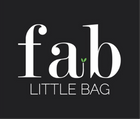
Everything You Need To Know About How Different Cultures Treat Periods
Written by Taerim Lee
The menstrual cycle is a crucial part of women’s lives and have been present since time began. But unlike menstruation, civilizations, cultures, and societies have evolved and changed over time. So how did the perception of periods vary throughout space and time?

A Run Through Period History
Let’s start with ancient civilizations. Historical writing was mostly done by men, as they had access to education and power. However, as men do not experience periods, we have very few historical records on this topic. But what we do have might raise an eyebrow; Roman philosopher Pliny the Elder thought that periods were magical sorcery. He wrote that periods could kill crops and even control the weather. Having this power would be amazing, but this reflects how menstruation was perceived as other-worldly, not as part of normal life. This link between women, periods, and magic helped to contribute to the whole concept of ‘witches’ women’s tragic persecution, especially between the 1560s and 1630’s.
During the Medieval times. Religious shame led to people hiding their periods, and it was even believed that period cramps were part of the divine punishment for Eve’s original sin. Since this pain was perceived as a sin, menstruating people did not have access to pain relief medicine. Instead of the modern version of pads, people would use rags to absorb the blood or free bleed.
Enter the Victorian times, the “Bridgerton era”, and we find the first period products. From the 1890s to the early 1980s, people used sanitary belts (reusable pads attached to a belt), but these were bulky and uncomfortable. The first disposable pads were first seen in the market in 1888, but the belts were still used to keep the pads in place. It may surprise you to know that the first tampons came to life as early as 1930, although to this day pads are the most popular across demographics. There remain religious and cultural objections to tampons and cups. The first Menstrual cup was also around the 1930s - although these have only recently gained true popularity.
Coming back to modern times, companies came up with adhesive disposable pads, stepping away from the belt in the 1970s, 1969 saw the first pad to adhere to underwear with an adhesive strip. You can buy a pack of the brand Dr. Whites, especially popular in the 50s and 60’s a sanitary belt with looped pads is on eBay right now !!
Nowadays, we have recognised the environmental benefits of reusable period products, like menstrual cups and reusable pads. There are products like the Sanitary Bags from Fab Little Bag that aim to protect rivers and oceans and beaches from the pollution caused by flushed period products. Now, there’s evermore freedom to explore and find the period products that work best with your body!
Nevertheless, negative perspectives about periods are still widely known, women may be prohibited from sexual intercourse and banned from religious ceremonies, and the kitchen and cooking in many cultures. Taboos about menstruation are found everywhere, we could even say that they are almost universal. This makes it harder for girls to find answers to the common questions they have about periods. It is hard to find a part of the world that does not succeed in making women feel guilty, diary, and even dangerous because of their natural cycle. To read more about these taboos, here are six that you can look into.
Through The Lenses Of Different Cultures
As always, there are exceptions, cultures that perceive menstruation in a more positive light.
Ojibwe People: Isolation in a Moon Lodge
In the Ojibwe culture, the concept of menstruation includes deeply ingrained fear from religious beliefs. Therefore, menstruating people are shunned and isolated in a moon lodge. While this practice can be considered as oppression to many, for Ojibwe women, this self-isolation is a restorative and valuable time, during which they refrain from sex, and food preparation, and take a break from their childcare duties.
Other women of the tribe support them by bringing them food and other necessities, making sure they are safe and comfortable. Ultimately, this ritual strengthens the female relationships in the community. Ojibwe women show us how meditative practices are important, especially using our period as a time to step back from all the hectic schedules and feel calm with our bodies. We have some tips for emotional care during your period here!
Filipino Superstition: Wiping Period Blood on Your Face to Prevent Breakouts
In the Philippines, wiping your face with your own period blood is believed to prevent breakouts. After all, there is nothing disgusting about period blood, as healthy menstrual blood doesn’t have any odour and is not harmful. So, let’s take this Filipino belief as a reminder for us to be comfortable with our period blood!
Celebrating Periods
The Flower Dance of the Hupa Tribe
In north-western California, the Hupa Tribe still practises its coming-of-age traditions for young girls. They believe that the first period is powerful, and celebrate it with the Ch’ilwa:l, or the Flower Dance. At the end of the dance, a large banquet is organised in her honour along with gifts. The Hupa Tribe considers menstruation as something very influential that can restore balance to the world. So, the next time when you're feeling blue because of your period, think about the power you hold!
The perception of menstruation has changed over time and varies throughout cultures. There are many taboos and negative opinions on periods that surround most societies, there are others that celebrate periods. While it is important to respect the cultural practices and beliefs of all, we shouldn’t forget to respect the people during their cycle. It is time to strive for the widespread acceptance of menstruation as a natural part of life.
